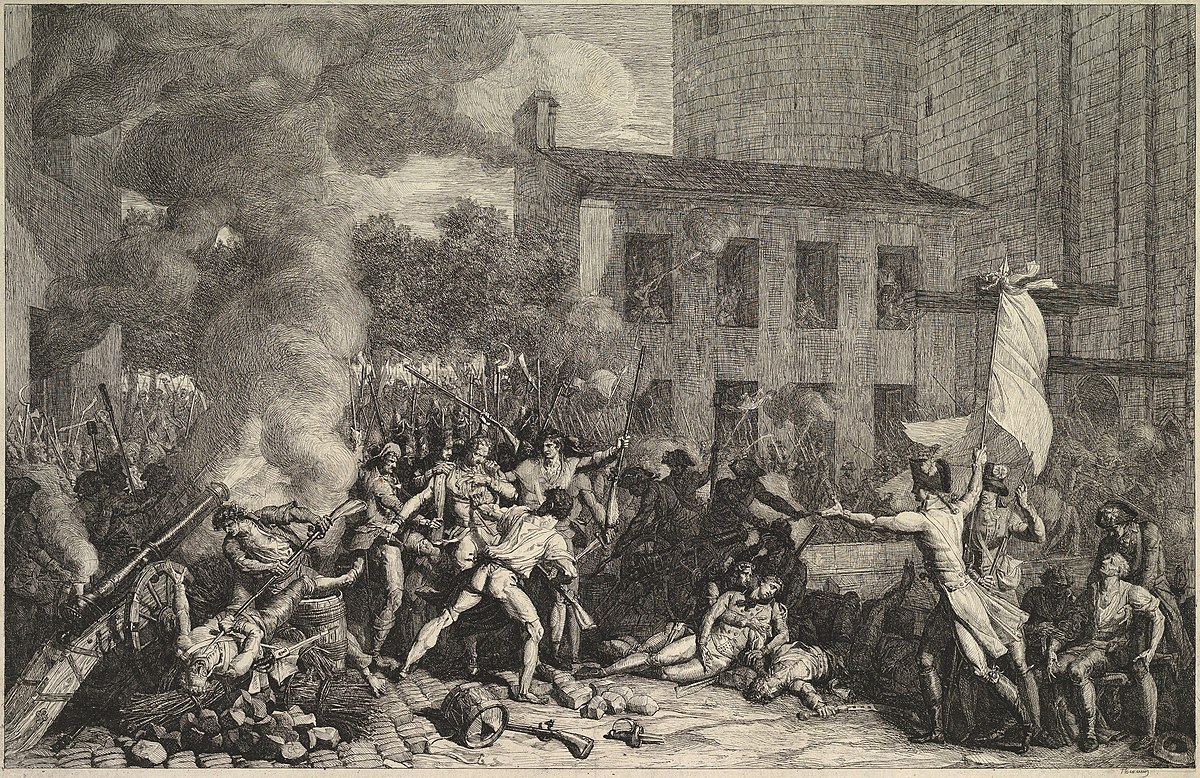General Discussion
Related: Editorials & Other Articles, Issue Forums, Alliance Forums, Region ForumsRevolutions, social and political
There is an extensive body of literature on the history and theory of revolutions, both social and political. Theda Skocpol is a leading theorist on the subject:
Theory
A "social revolution" is both a change in state institutions (a political revolution) and a change in social structures. The American revolution was only a political revolution, not a social one, since it did little to change social structures. The Chinese revolution, on the other hand, was a social revolution; not only did the state institutions change, but the entire social order changed with it.
A social revolution occurs in two stages (which correspond to parts I and II of the book), and in each stage two structural variables determine what happens next. For more details about the four structural variables, see pages 280-281.
A Revolutionary Situation
In Part I, two variables cause a revolutionary situation. These two variables are jointly sufficient for a "social revolution" to occur. The key word is "sufficient": This is a deterministic theory. If both structural variables are in place, a revolution should always occur.
First, there must be a "crisis of state," often provoked by international factors, such as increasing economic or security competition from abroad. It is a crisis, not merely a challenge, because this is a challenge that the state cannot meet given its current institutional constraints. As a result, elites (and the army) become divided over what to do and loyalty to the regime weakens. This crisis of state creates the revolutionary situation.
Second, patterns of class dominance determine which group will rise up to exploit the revolutionary situation.
The result is a social revolution; the patterns of class dominance merely determine who will lead it.
http://wikisum.com/w/Skocpol:_States_and_social_revolutions
Political revolution:

Social Revolution:

Storming of the Bastille, Paris, July 14, 1793

Celebration of the seizure of the presidential palace in Havana, Cuba, by the July 26 Movement
Political inspiration: Inspiring people to get involved in politics, running for office at the local level. Fantastic! Potential to lead toward long-term reform.
cosmicone
(11,014 posts)Social revolutions start when a disgruntled middle class joins with a dissatisfied working class and they revolt together. In the process, the upper class is eliminated and the former middle class becomes the new upper class but is incapable of changing basic equations of life.
Over several years, a new middle class forms from left-out members of the new upper class and upwardly mobile members of the working class. This new middle class gradually gets disenchanted and the whole process starts over again.
The Russian revolution got rid of the Tzars and ended up having a politburo. Zero change in the prosperity of working class.
The French revolution got rid of the Bourbons and got Napoleon. Not much change in the conditions of the working class.
The Iranian revolution got rid of the Shah and got Khomeini. The conditions of the working class got worse.
BainsBane
(53,010 posts)and the French Revolution was against the aristocracy, largely for the benefit of the bourgeoisie. France didn't have much of a working class at that time, but they did have a large peasantry.
The working-class only developed as a result of industrialization. Prior to that, people worked the land, and land tenure varied from place to place. Working-class by definition requires that people have no ties to the land other than as wage labor, if that.
So revolution has played a role in class formation. It can be argued that the rise of the bourgeoisie, or middle class, that came about through the French Revolution, played a role in the development of industrial capitalism and hence the working class. The Bourbons were replaced by Napoleon, who in turn was defeat. France would never again be run by an aristocracy. It certainly brought about change.
The French Revolution also played a role in other movements, such as the American Revolution and the Haitian Revolution, which eventually ended slavery on Haiti.
Not all change is good, certainly, but it is part of history.